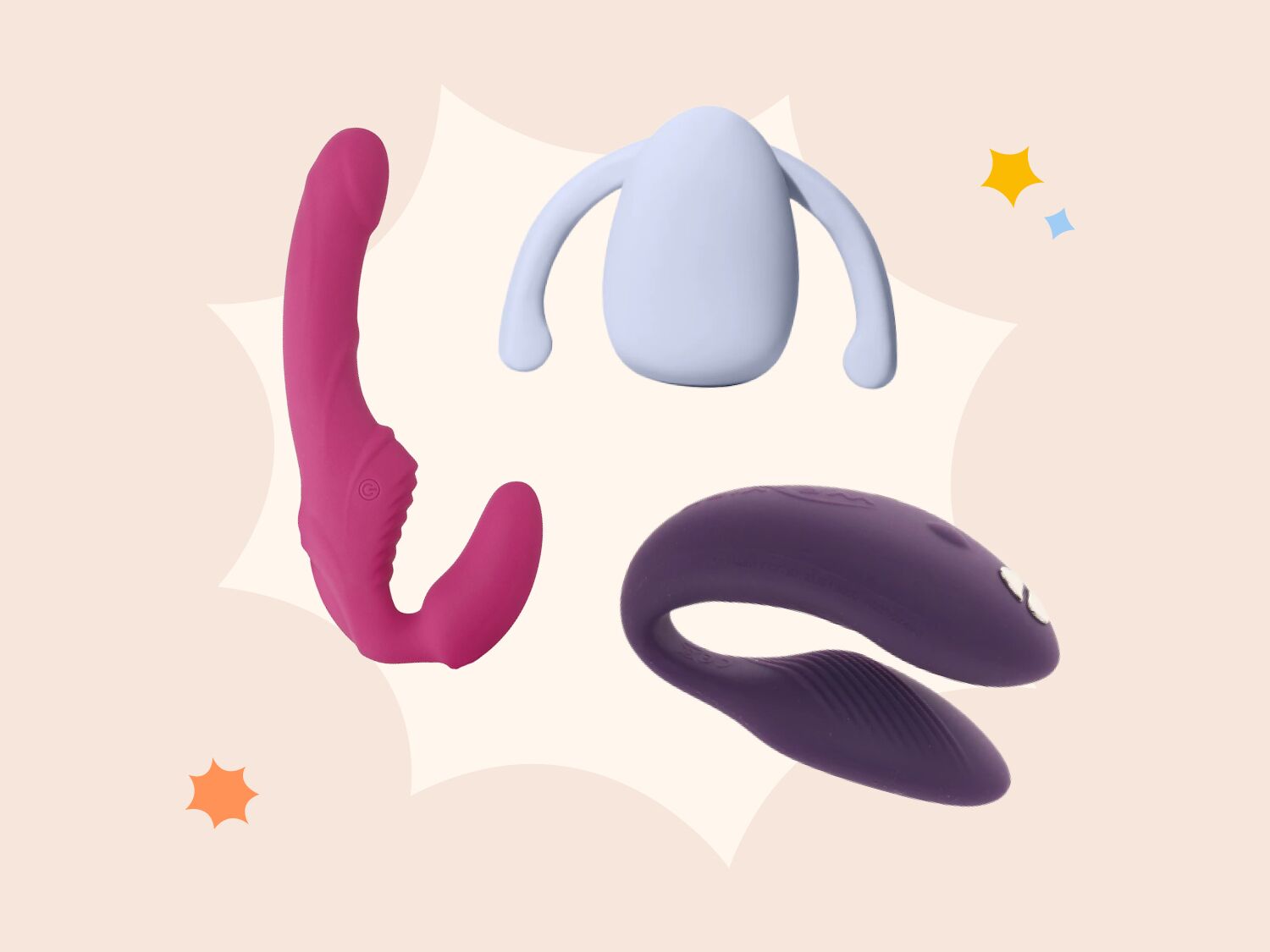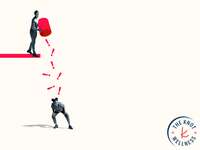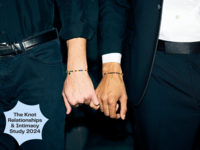Why Do We Kiss? Here's What Science & History Reveal
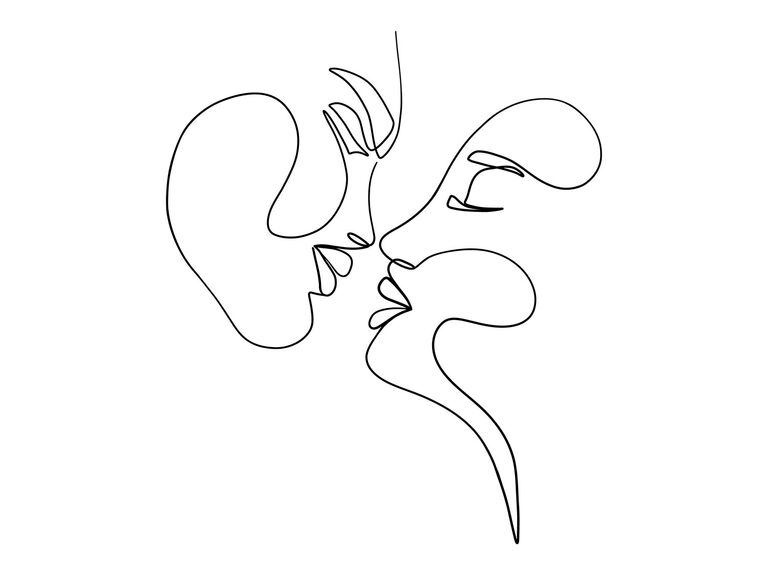
You can't spell k-i-s-s-i-n-g without asking the basic question: Why do we kiss? Modern humans are predisposed to rely on kissing as part of the mating process, but where exactly did this behavior come from, and is it genetically encoded in us to know how to kiss? According to science, romantic kissing is the resulting behavior of biological desire and psychological attraction.
In the Animal Kingdom, mating rituals differ. In arid and dusty regions, the strong and lowly, male dung beetle pushes its pile of dung through vast distances as the female rolls along for the ride—literally. In parts of Namibia and Botswana, the sociable weaver constructs large nests, or more like estate-like compounds, to impress a potential mate and bring luxury community living to shame. Some animals dance or attract with bright colors (think: ducks and peacocks), while others chase their desired partners. Humans arguably have a significantly longer and labyrinthine list of mating qualifications, but physical attraction is deduced by the chemistry of scent and touch—and that includes kissing. Only a few species kiss romantically, like the bonobo ape and chimps.
Why we kiss likely has more to do with how we're genetically encoded after humans adopted the behavior. For example, when we consume sugar, a chemical hormone known as dopamine (found in the pleasure portion of the brain) is released. Similarly, kissing activates that same hormone, as well as a cocktail of chemical responses like oxytocin and serotonin. It turns out that indulging in sugar and kissing isn't so far apart. However, the reasons why we kiss are slightly more nuanced than why we consume sweets. To understand this age-old question, we must dive into the mysterious origin of kissing, or rather what's known at this juncture of history, as well as the psychology and biology behind the science of smooching.
Meet Our Expert
Dr. Cortney S. Warren, PhD, ABPP, is a Board Certified Clinical Psychologist and the author of the new book, Letting Go of Your Ex (2023).
In this article:
- Why Do Humans Kiss?
- The Origin of Kissing
- The Future of Kissing
- The Overall Importance of Human Touch
Why Do Humans Kiss?
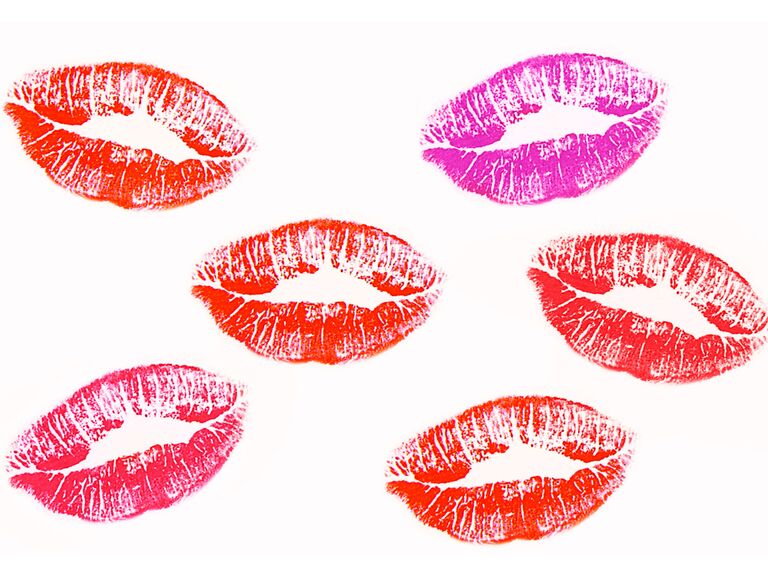
Inherently, kissing between romantic partners is a form of physical connection for humans. It also signals other biological needs. "In addition to feeling good physically, intimate kissing is related to sexual arousal, attraction, and bonding—or, the lack thereof, if the kiss is less-than-ideal," says Board Certified Clinical Psychologist Dr. Cortney S. Warren, PhD. "In fact, kissing is part of maintaining a bonded and attached romantic connection in most long-term relationships."
A 2020 study involving 1,605 participants across committed, long-term relationships made an interesting discovery, says Dr. Warren. "The more frequently people kissed, the more they positively experienced sex with their partner (including general levels of interest and arousal, orgasm, and event-specific sexual satisfaction). In addition, kissing frequency is also associated with increased general relationship satisfaction with their mate," she notes.
Hugging and kissing are also among the first biological behaviors young teens experience with courtship rituals. According to 2019 research, the average age of a first romantic kiss is at age 15, and 90% of respondents recalled their first kisses with vivid detail. For many, kissing a high volume of frogs to find "the one" is a notion that isn't too far from the fairytale. The behavior adds a layer of selectivity in the mating process.
The act of kissing also plays a large role in spotlighting the emotional connection between partners. Dr. Warren refers to a 2020 Cambridge study of 691 adults where the "best kisses" were described as those that sparked emotion (passion, love and surprise). The worst kisses, however, were devoid of passion or simply unpleasant (we'll leave that to your imagination). "Overall, four primary themes in people's descriptions of kissing emerged," says Dr. Warren. "They include physical components (how good it felt), connection to partner (who they were kissing), the context for kissing (how and when they were kissing), and emotions provoked during a kiss. Overall, the quality of a kiss is important to maintaining an attraction to a partner—in this sample, about 44% lost romantic or sexual interest in a person because of a less-than-ideal kissing experience."
The timing of kissing further relays information biologically and emotionally. "The question of when we kiss adds another layer to the mix. There is also some research on sex differences in when people want to kiss," says Dr. Warren. "For example, a study by Hughes and Kruger (2011) found that males were more likely to initiate kissing before having sex while women were more likely to do it after sex when they're in long-term romantic relationships. That said, both sexes reported that kissing is more important before sex and than after; and, cuddling and loving-professing speech was more important after sex as part of bonding."
The Origin of Kissing

The exact inception of kissing still remains dubious, but the practice has been documented for at least 3,500 years. Anthropologist Vaughn Bryant, a professor at Texas A&M, traced the earliest documentation of humans romantically engaging in the behavior back to the Vedic Sanskrit texts of the Mahabharata, circa 1500 BC. He's also pointed to the Kama Sutra, which is also the oldest-known guide on types of kisses.
But the first kiss for mankind was accidental, Bryant has claimed. Sometime between 1000 to 1200 BC India, partners were nuzzling each other affectionately with their noses when their mouths intertwined. (During this period, the rubbing of noses was developed throughout India.) "It seems obvious," he theorized to the Washington Post in 1981. "They hit each other's lips and said, 'Wow! That doesn't taste like V-8.'"
Others argue that the origin of kissing is biological—much like how we see birds and other select wildlife choosing mouth-to-mouth feeding techniques, it could also be seen as a mating ritual with a survival purpose. Bryant has counter-argued that kissing wasn't a generally-known practice at the time. It only spread to Europe once Alexander the Great conquered India's Punjabi region in 326 BC and subsequently observed locals kissing. Whether it was exercised elsewhere remains a mystery.
On a bleak note, the spread of kissing was directly correlated to the rise of diseases, such as the herpes type one virus. Hundreds of years later and unsuccessfully, Roman Emperor Tiberius even attempted to ban the practice understanding its epidemic link. However, the winners of the 2015 Ig Nobel medicine prize (the satirical prize that parodies the Nobel Prize, though on actual scientific findings) found that intense kissing could involve perks like decreasing skin allergies.
The Future of Kissing
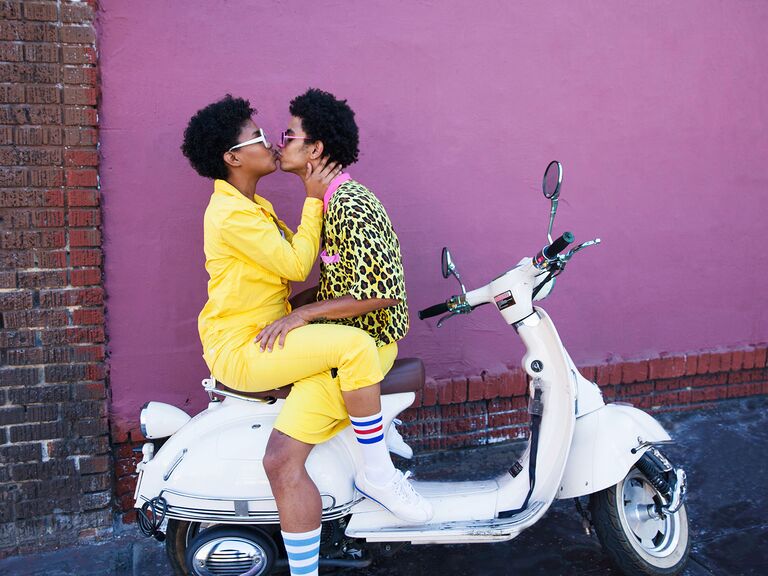
The question of why do we kiss may get even more complicated in the future. "This is a very hot topic, particularly since COVID restrictions limited physical contact for many," explains Dr. Warren, the author of Letting Go of Your Ex (on stands now). "We're [also] seeing an increase in internet-based dating in which physical touch is limited. For example, a recent study of 1,746 participants that examined intimate, friendly, and professional touch experiences during COVID-19-related restrictions found that intimate touch deprivation (kissing, hugs, caresses from family or friends) was associated with higher anxiety and greater loneliness," she explains.
Who knows how courtship will evolve with the added layer of technological advances and reliance on AI? One can argue, however, that dating apps (weighing both the pros and cons) still encourage in-person interaction. Since most conversations evolve from messaging to meeting, the eventual step of kissing (among a quagmire of other interests) is still a selective factor for humans as they date.
After all, there remains a primal need for physical interaction, says Dr. Warren. "Recognizing that all of us have a very human need for touch and connection is a good starting point," she elaborates. "Making an effort to be affectionate and touch those we love (in sexual and non-sexual ways as is appropriate) is part of how we show care, connection, and intimacy. One strong recommendation I make to people is to put down electronics over meals and during times when loved ones are near so that it's easier to be fully present at the moment with them."
The Overall Importance of Human Touch

Romantically speaking, touch (among other love languages) is a "key aspect of bonding and attachment," Dr. Warren continues. But physical touch isn't limited to partners. It's important for the human experience. Touch between friends, family and community (think: hugs or other forms of greeting) is linked to a slew of health benefits.
"Emerging neurobiological research suggests that physical touch releases oxytocin in the body, which is a powerful hormone that acts as a neurotransmitter in the brain," she explains. "Oxytocin has anti-stress effects on the body, such as reducing blood pressure and cortisol levels and promoting growth and healing. Although oxytocin can be released by various stimulants, touch is one of the easiest ways to release it. During his TED talk, Dr. Paul Zak argues that people who get at least eight hugs a day report feeling more connected to others and happier than those without such contact. Increasing oxytocin levels and decreasing cortisol levels, which can be achieved by hugs and touch, can help with stress." (It's no wonder kissing feels so good!)
A significant amount of research reveals the impact of touch on the mental and physical well-being of humans—from infancy well into adulthood. "Physical touch and love from an adult caregiver are actually critical for healthy emotional and physical development starting in infancy," explains Dr. Warren. "Research conducted primarily out of Romanian orphanages pioneered in the 1940s by Rene Spitz, showed that children who were not touched (held, caressed, rocked), even if they had basic food, water and shelter, experienced horrible developmental problems over time."
"Physical touch in adult relationships, which does not need to be sexual in nature, helps us feel socially bonded and connected to others," she concludes. In essence, touch enhances our lives and romantic kissing is an extension of this basic human need.

